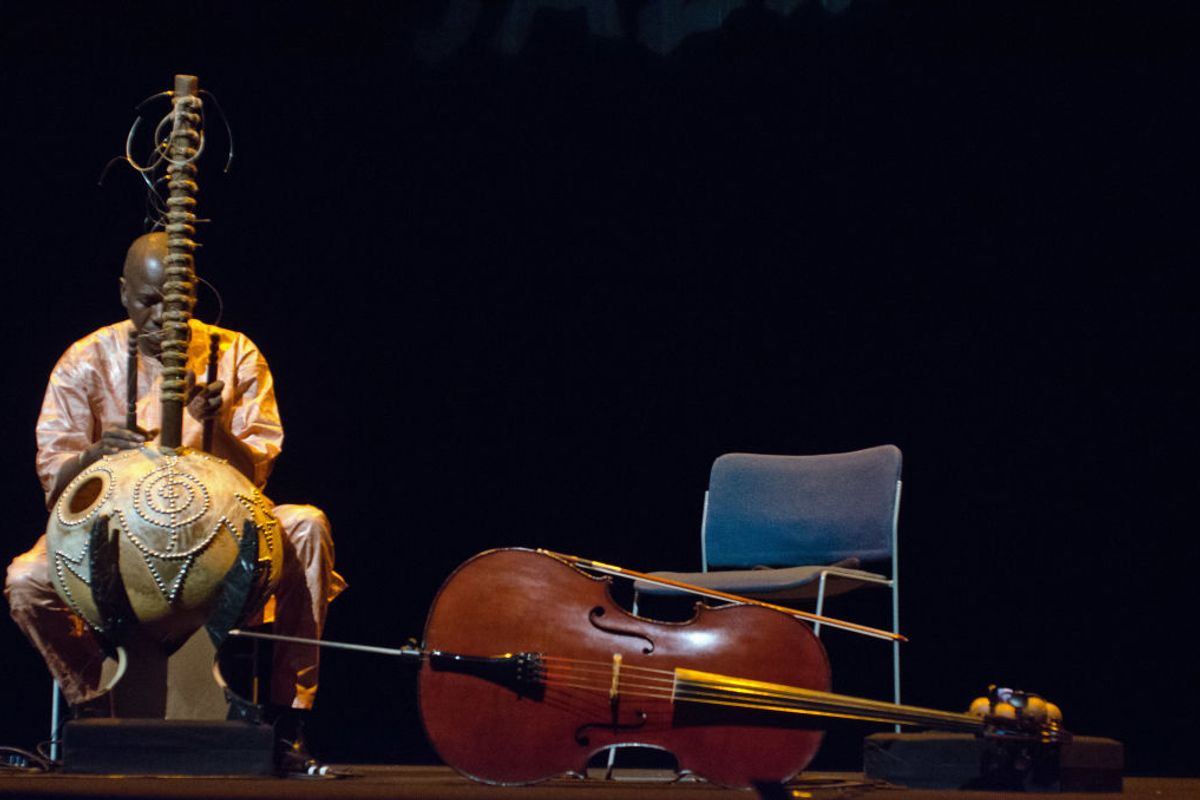Ballaké Sissoko Speaks About US Customs Breaking His Kora
In a new interview with OkayAfrica, the Malian musician tells us about the value of his custom-made kora. "It takes many hours to get the precious sound... the quality of a traditional instrument is very different."

You can now donate to a GoFundMe for Ballaké Sissoko started by his label No Format.
Malian musician Ballaké Sissokohas been asking U.S. customs for answers following the notable damage to his kora following his American tour.
According to Sissoko, upon arriving in Paris and opening his luggage, he found a leaflet from US customs officials which stated that they had opened the instrument's case for inspection purposes. However, the leaflet said nothing about the disassembly of the instrument itself.
"The strings, bridge and entire, delicate and complex sound system of amplification has been taken apart," Sissoko has mentioned. "Even if all the components that have been disassembled were intact, it takes weeks before a kora of this calibre can return to its previous state of resonance. These kinds of custom-made koras are simply impossible to replace. In Mali, the jihadists threaten to destroy musical instruments, cut the tongues out of singers, and silence Mali's great musical heritage. And yet, ironically, it is the USA customs that have in their own way managed to do this."
Sissoko is a contemporary master of the kora who rose to fame in 1999 after featuring on fellow kora player Toumani Diabaté's album New Ancient Strings. The following year,he released his debut solo album, Déli, which features his wife and vocalist Mama Draba, among several other musicians.
The T.S.A. recently issued a statement denying that it opened Sissoko's case.
We spoke to the Malian artist below about this ordeal.
This interview has been edited and condensed for clarity.
What brought you to the U.S.?
I was on tour with the African strings trio 3MA. We played in LA, Berkeley, Miami , Chicago and New York.
It was during a flight from New York to Paris that this occurred. Did you have any issues getting the instrument into the U.S. in the first place?
I've traveled across the world for 30 years, My kora has a very good flight case. Although the shape is a bit different and considered as oversized luggage by air companies, it generally goes well.
Can you tell us the extent of the damage to the kora?
This kora is totally damaged and a new one is needed, it has been dissembled. The microsystem is broken.
Have you had issues traveling with the kora before?
Some years ago, while also on tour in the United States with Vincent Ségal, another kora was damaged but not dissembled like this time.
Does this prevent you from playing any upcoming concerts?
Fortunately my next concert is on February 28th so it leaves time to create a new instrument that should be ready on the 27th!
How do you even go about repairing this kora? Is it possible to even estimate a cost of these damages?
A new kora will cost around €5,000. But the value cannot be really estimated because it takes many hours to get the precious sound and the quality of a traditional instrument is very different. It is not a simple computer that you can change!
What other shows or releases should people be looking for from you?
I have a European tour with 3MA this March, going to London, Amsterdam, Rotterdam, Sevilla, Paris... and my new solo album will be out in October on label NoFormat.
UPDATE 11/02: Ballaké will be performing at Jazz Cafe on March 22nd. Find out more here.

